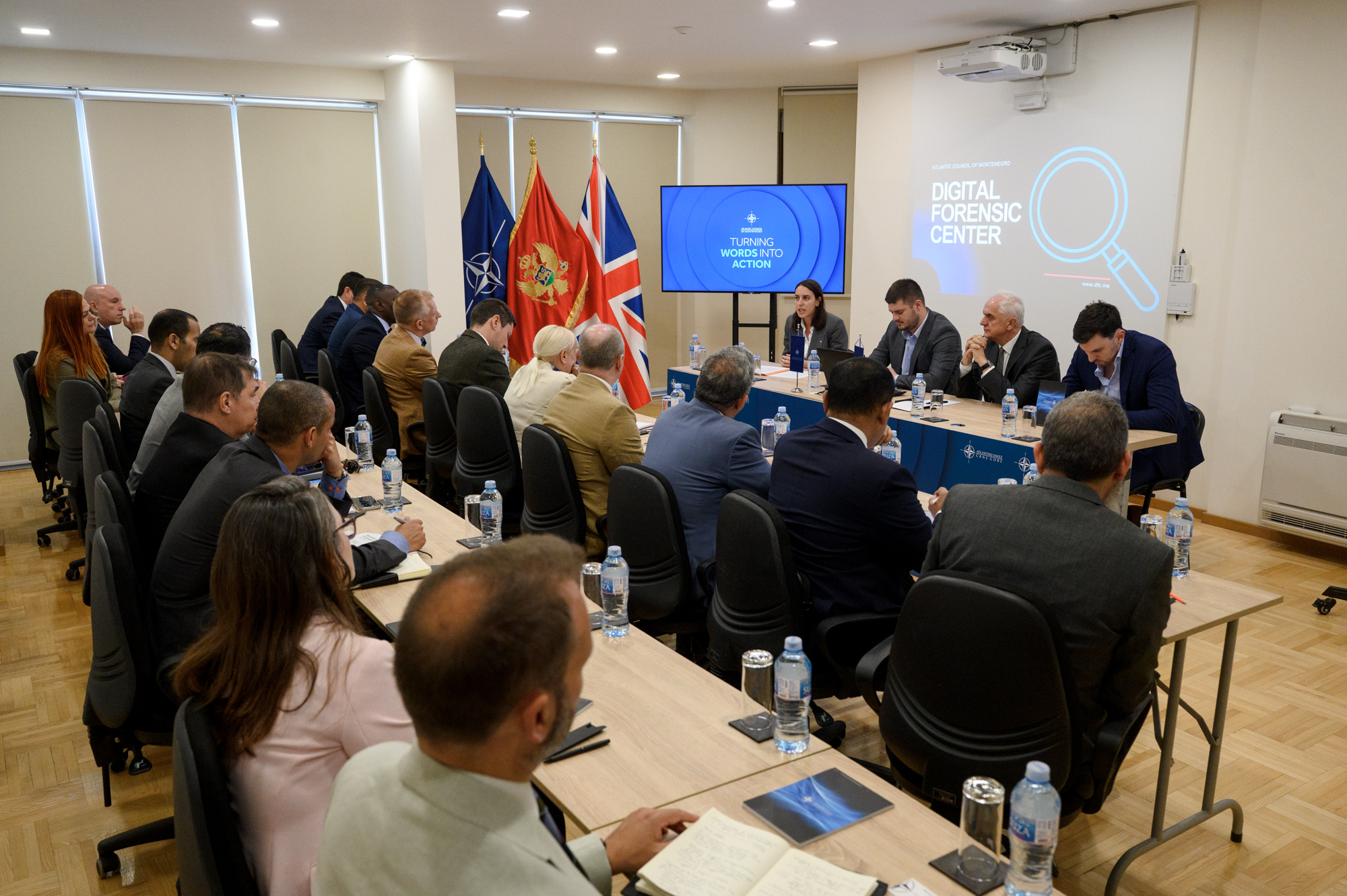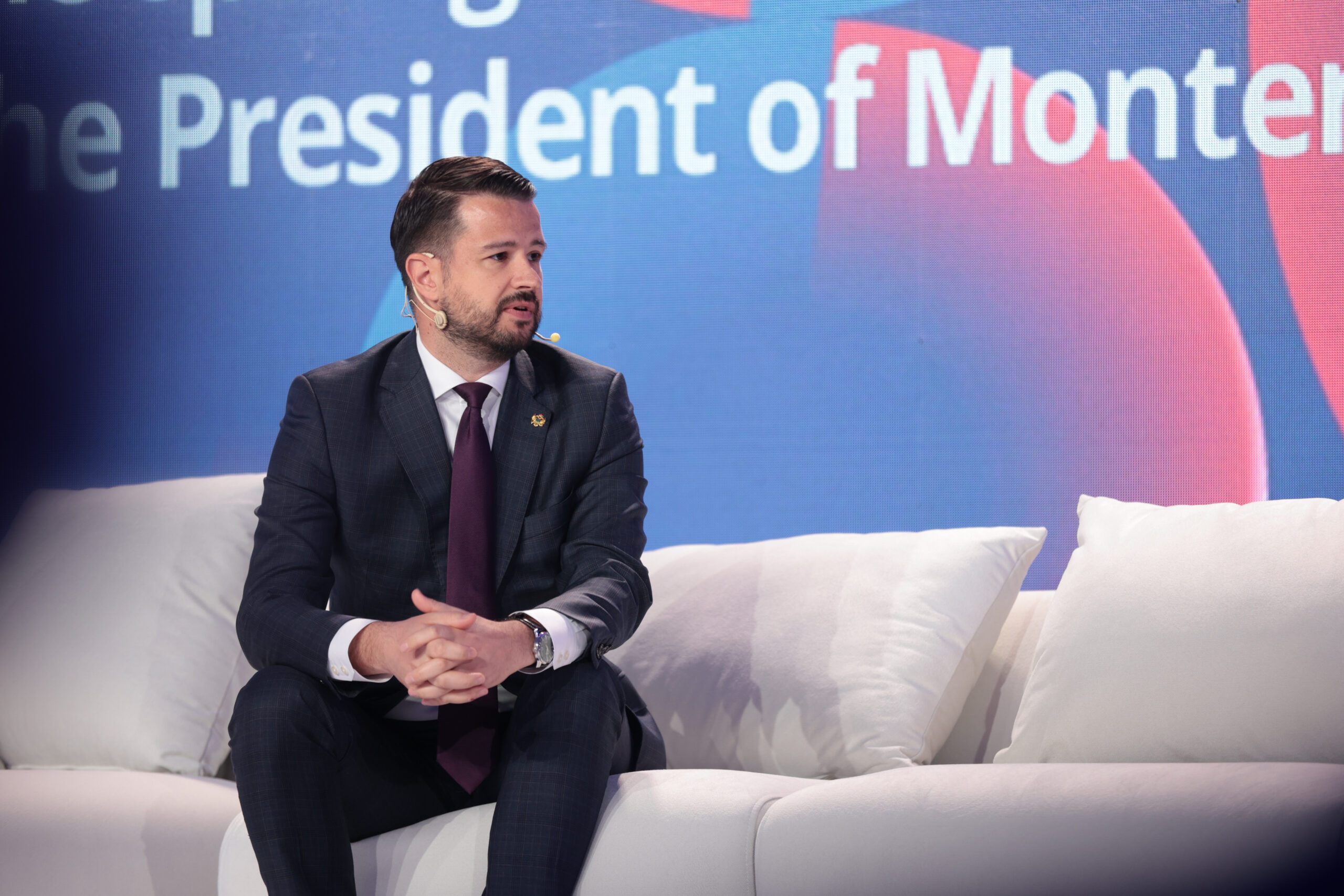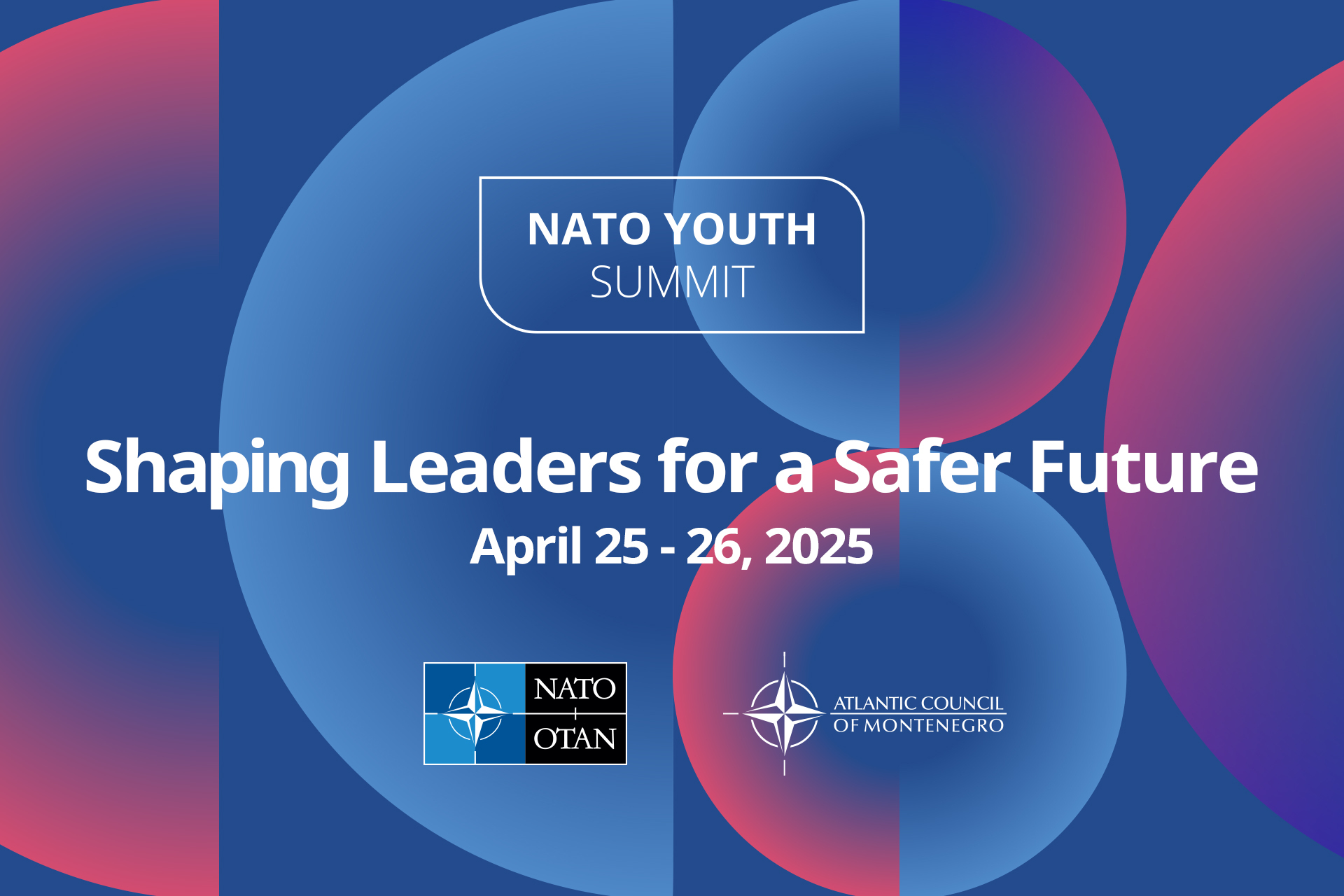The Minister Crnadak highlighted that the situation in Bosnia and Herzegovina is not excellent and that the conditions in the country are not good, even 25 years after the war. He also commended the influence of Montenegro in the region, which, according to him, serves as a great example. During the open debate free of “taboo subjects” as the Minister said himself, there were many questions. He considers the Dayton Agreement a solution, even though the system in the country after this agreement is not particularly successful, and, according to his words, it is only necessary to make additional efforts so that the effects of the System would be seen in practice in the best light possible. Responding to the questions of the audience, he highlighted that there are many situations that could only be seen as an obstacle for the country on its way to Euro-Atlantic integrations. These include the initiative of the SDA (political party in Bosnia) for the Republic of Srpska to change its name. There are too many deadlocks of this kind that obstruct the work of the bodies. What is certainly important is the fact that “the process of Euro-Atlantic integrations must not be the hostage of the authorities”, as he stated. It is expected that Bosnia and Herzegovina will receive the status of the candidate country for the EU. It was also highlighted that the cooperation with NATO is developing and that there are efforts to overcome the disagreements. When it comes to the question of “the temporary alienation of the EU” from the area of the Western Balkans, he responded that the EU is turned towards the other regions of Europe as well and that it is still more important that the EU leaders do not consider the continent “completed” until all the European countries access. With the constant influence from the East, issues of rehabilitation of the fighters that returned from Syria, the influence of “masking” the important issues in the state, the country leaders’ revision of the decisions already adopted, but also the issues of the boarders with the neighboring countries and breaching of the agreement between countries of the Western Balkans, it is clear that Bosnia and Herzegovina and the countries of the region are still facing a great challenge.
Certainly, the main messages of this visit are that Bosnia and Herzegovina is dealing with its “life issues” more than ever, that it places its foreign policy priorities (the EU and regional relations) side by side and that we are gradually working towards better life standard of all citizens not only in Bosnia and Herzegovina, but also in the whole region.








